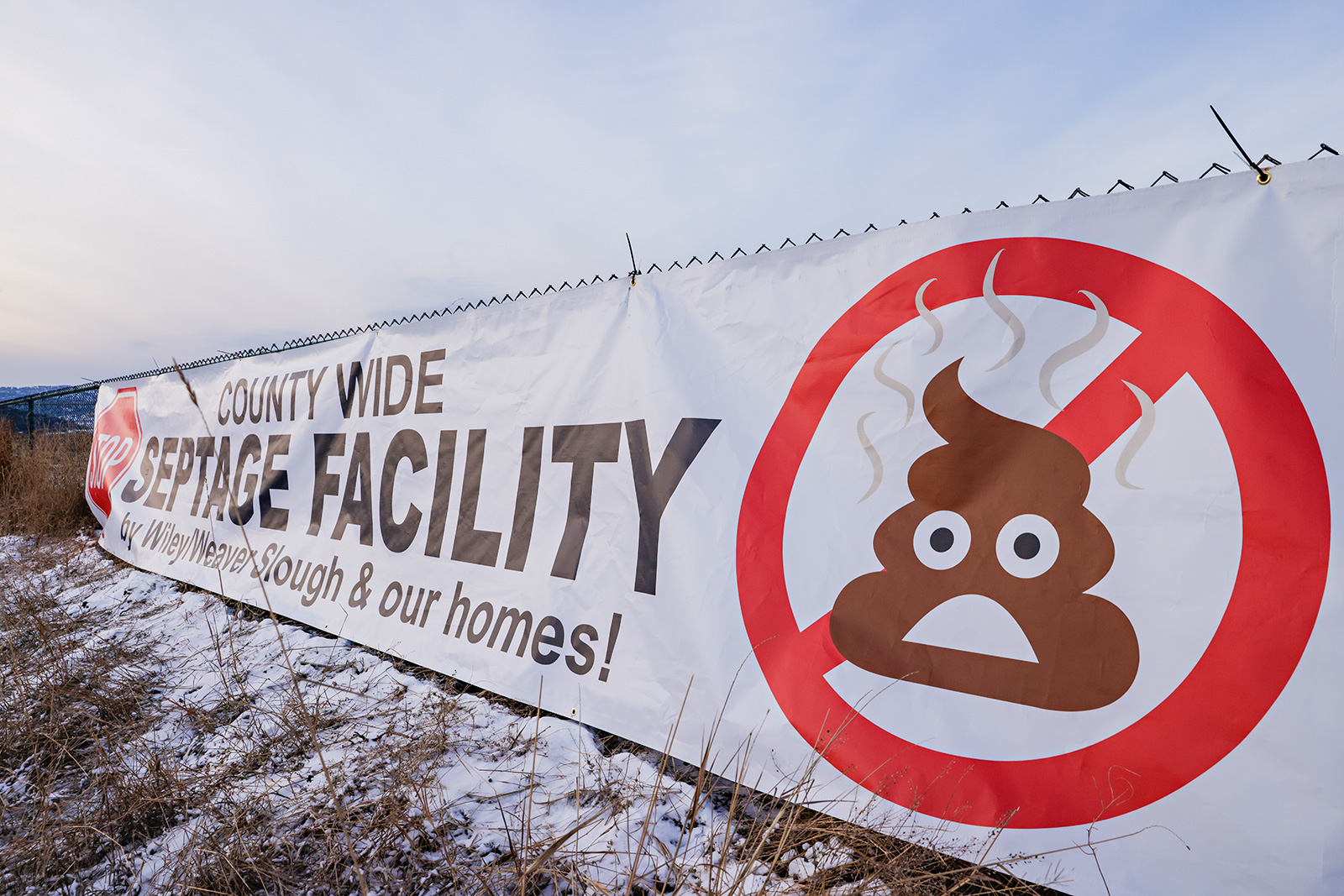County Septage Facility Project Transferred to Lakeside Water and Sewer District
The Flathead County Commission voted to pass through ARPA funding to the district to upgrade facilities and handle increased waste
By Micah Drew
The Flathead County Commissioners at their March 19 meeting voted unanimously to enter an interlocal agreement with the Lakeside County Water and Sewer District (LCWSD) for the construction and operation of a septage treatment facility. This supplants an interlocal agreement signed last September that initially planned for the county to fund and construct the regional septage facility and utilize the district for wastewater disposal.
“Our intent was always to find a willing water and sewer district to treat the wastewater. And at some point, if not them, we’d find somebody to take over operation of the whole facility once it was up and running,” commissioner Pam Holmquist told the Beacon following the vote. “After a lot of discussions our staff came to us and asked what we thought about Lakeside taking over the whole thing and that involved less steps and is more efficient and just makes sense.”
County staff have been working toward solutions for the growing need of improved waste disposal for two decades, and with the availability of federal American Rescue Plan Act (ARPA) funds during the COVID pandemic, concrete plans began to coalesce around building a regional facility in the lower valley. The county has roughly $17 million of ARPA funding that can be dedicated for water and sewer-related projects, as well as grant money from the Montana Department of Natural Resources and Conservation and Environmental Protection Agency.
Last fall, the commissioners purchased a 36.9-acre property on Wiley Dike Road with the intent of constructing a facility that would be able to treat 5 million gallons of waste annually.
There has been vocal opposition of the proposed septage location from nearby homeowners as well as from nonprofit watchdog groups in the Flathead Valley that have expressed concern over the risk to the watershed and Flathead Lake.
Community members Mayre Flowers, with Citizens for a Better Flathead, and Jennifer Tipton, with the North Shore Water Alliance, spoke at Tuesday’s meeting requesting the commissioners hold off on signing the agreement.
Flowers stated her belief that Lakeside does not have the legal authority to enter into such a contract with the county and expressed concerns over a lack of permits from the Montana Department of Environmental Quality (DEQ) to expand its current operational capacity. She shared a joint letter from the two organizations written to DEQ asking the department to intervene and halt the county’s decision.
“We feel that a pause would allow the public and you to go to DEQ and ask for clarification and a roadmap forward,” Flowers said. “It needs to be addressed in a way that is long term and beneficial to the community.”
Under the new interlocal agreement, Flathead County would authorize roughly $21 million to the LCWSD for the construction and operation of a septage facility. The terms spell out that the county reserves 20,000 gallons of capacity per day during the first year of the new facility’s operation, and 60,000 gallons of daily capacity after the first year to treat county waste, and contains a series of contingencies that must be met in order for the funding designation.
The district must obtain all necessary permits from DEQ by the end of 2024. Seven million dollars of the funding is contingent on the district finalizing construction contracts, with another $3.5 million paid out following the facility becoming operational. The septage facility must be constructed by the end of 2026.
The district is also required to make quarterly reports to the county detailing all expenditure of the federal grant funding.
“This project is being overseen by DEQ … there’s quarterly reports to the county, so we are holding Lakeside Water to account for doing their job on this,” commissioner Brad Abell said. “This is very much needed in our county. If you don’t maintain septic tanks here, it does affect the quality of water. Going through a sewer district does take care of the ground water.”
The LCWSD board, which is elected by residents of the district, voted to approve the agreement at a meeting Tuesday afternoon.
Flowers expressed her frustration at the county decision following the meeting, stating there is a greater need for transparency when this much money is being discussed without going through the proper channels.
“This is the public trying to do their due diligence to make sure we’re holding our government bodies accountable,” she said. “We are trying to be totally transparent and are just betting these agencies to do their job. We don’t want to go to court, but if we have to go to court to protect our water quality because they aren’t doing their jobs, that’s where we’re headed.”